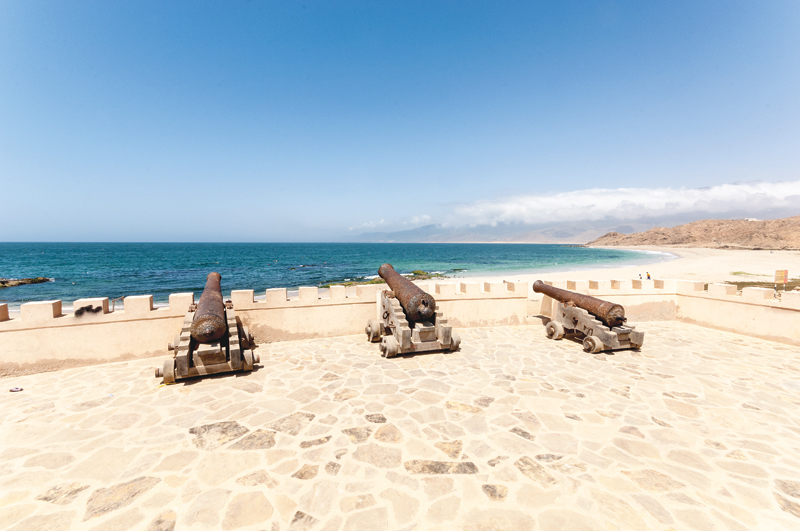

The hovering clouds and some sudden drizzles are raising the hopes for the arrival Khareef (monsoon) in Salalah. Officially, the Khareef season starts from June 21, but it is not very easy to predict the mood of the nature. Predictable, however, is the mood of the people in Salalah. They are waiting for the arrival of Khareef, which not only gives them respite from blistering heat but also business for many.



People come from everywhere to Salalah, or one can say ‘all roads lead to Salalah during Khareef.’ It would be wise for people, who are planning to visit Salalah this Khareef, to make a list of places and categorise them as per their choice.
The best way to visit Salalah and around, is to divide the site seeing locations into East and West.
The road that goes to Taqah and Mirbat and slightly further to Shuamiya from Salalah has many places of touristic attraction in between.
The journey covers places like Ain Razat, Wadi Darbat, the famous Taqah castle, Sumharam, Mirbat village, Hasik and Zeik.
It is better always to plan the trip in advance instead of starting the plan after reaching Salalah.
If time permits there are many places to see, relax and even organise picnic.
For a first timer in Salalah, the city has a lot to offer.
Most of the important tourist places in Salalah are located within a radius of 40-60 km.
But to touch all of them in a day or two is a challenge.
It is advisable thus to divide the tour in two parts in two days for those who have shortage of time and are there in Salalah for a maximum of three to four days.
In eastern Salalah there is the old fishing village of Taqah, famous for the dried Sardines and with its traditional and old typical Dhofari old houses.
It also has the century old Taqa Castle, which was used as an official as well as residential premise for the local ruler in ancient times.
The ruin of Sumharam which goes back to 3rd Century BC is another major attraction.
Sumharam was believed to have been the principal port from which frankincense was shipped in ancient times, the hub and harbour for the shipping of frankincense towards the ocean, for export to many places in the world.
Another interesting location is the fishing village of Mirbat, the ancient capital of Dhofar, since 9th Century which was famous for auctioning and trading of frankincense and horses.
The streets in Mirbat are lined with old Omani limestone with mud houses and Bin Ali tomb, Dhofar´s best known historic Islamic Shaikh who introduces Islam in this part of Oman.
Ayn Razat garden is beautifully laid out amidst the lush mountains and nourished every day of the year by natural underground spring water.
Other destinations like Hasik, Shuamiya and Ziek etc are covered depending upon time and tourists’ individual interest.
Eastern Salalah also gives an opportunity to drive along with lush green trees.
A nice fusion of traditional and modern life-styles of Dhofar can be seen in old Salalah.
There is a Stone Town and to the Gold Souq and then the traditional Hafa Souq, where one can find a fine crystal frankincense of which a wide range of aromatic fragrances reminds us of the ‘mysterious orient.
Kaushalendra Singh
Oman Observer is now on the WhatsApp channel. Click here



